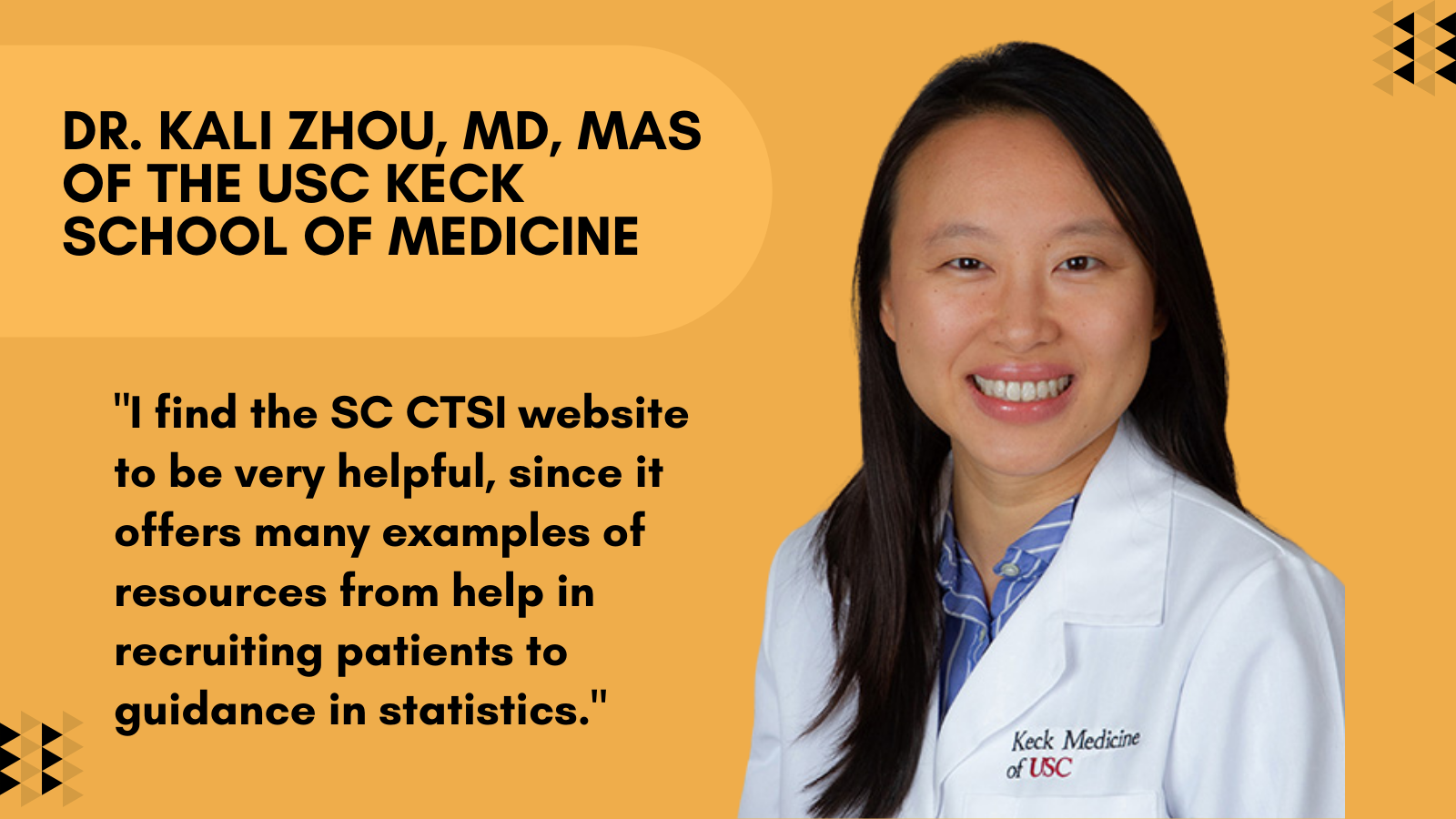BERD core group offers multiple research services to investigators

If you are diagnosed with liver cancer, could your community type—urban, suburban or rural—affect your treatment and health outcome? Kali Zhou MD, MAS of the USC Keck School of Medicine decided to test that hypothesis. But first she needed guidance in accessing and analyzing cancer databases. For help, she turned to the Biostatistics, Epidemiology and Research Design (BERD) core at the SC CTSI.
Liver cancer, or hepatocellular carcinoma (HCC), is the fastest-growing cause of cancer-related deaths and one of the most serious cancers in adults.
In a 2020 study published in JNCI Cancer Spectrum, Zhou and her colleagues found that patients living in rural and suburban communities at the time of HCC diagnosis in the United States were more likely to be diagnosed at a later stage of disease than urban patients and were less likely to have received any of type of treatment for the disease. This study is the first large population-based effort to evaluate HCC care by rural-to-urban residence over the past 20 years.
“Especially in rural communities, we need to better understand what resources and options are lacking for treating liver cancer,” said Zhou, a transplant hepatologist and Assistant Professor in the Division of Gastrointestinal and Liver Diseases in the USC Keck School of Medicine.
Zhou asked BERD to guide her through some critical stages of this complex research effort.
“When starting a new project, most investigators will encounter challenges that are not in their wheelhouse,” said Zhou. “Going into this study, I had very little experience with cancer databases such as the Surveillance, Epidemiology, and End Results (SEER) Program.”
Zhou began collaborating with Trevor Pickering, PhD, Director of the MS programs in Biostatistics and Public Health Data Science at USC and a member of BERD core at SC CTSI. This group provides biostatistics services and other guidance to investigator-initiated clinical studies and trials from concept to completion.
“We tailor our service to what the investigator needs,” said Pickering. “Kali Zhou was interested in what research questions she could answer with the SEER database. We discussed study design, and then we helped her gain access to the database and secure data, and I helped with the statistical analysis for the JNCI Cancer Spectrum paper. Very few people have all the skills necessary to do research completely on their own. Especially when we are beginning our careers, we might not know where to turn for that help. If we are not the best ones to help with a particular problem, then often we can refer them to someone else who could be a good resource for them.”
Zhou frequently peruses the SC CTSI website for research tools and support opportunities. “I find the website to be very helpful,” she said. “It offers many examples of resources from help in recruiting patients to guidance in statistics. When you’re stuck on a research project or you aren’t sure what the best way forward is, it’s helpful to reach out to them, because they’re very willing to help investigators.”



